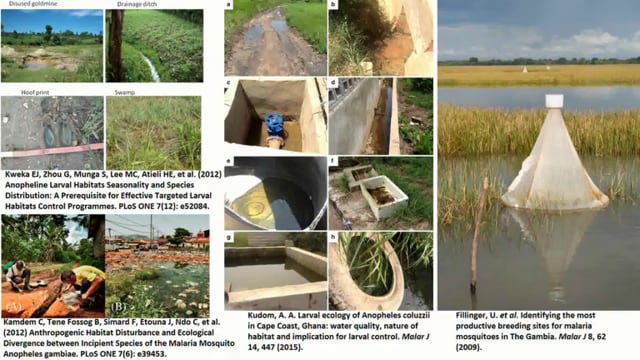ASTMH 2016, R. Rebecca Love: “Genomic analysis of the Anopheles gambiae Bamako ecotype”
Collaborator(s): University of Notre Dame, United States
Published: 16/11/2016
In collaboration with ASTMH, Image Audiovisuals, and session presenters, MESA brings you this webcast from the 65th ASTMH annual meeting in Atlanta, November 2016.
Title: “Genomic analysis of the Anopheles gambiae Bamako ecotype”
Speaker: R. Rebecca Love, University of Notre Dame
Session information: Scientific Session 144: “Mosquitoes: Molecular Genetics and Genomics”
Wednesday, 16 November, 1:45 – 3:30, Marriott – Room A602
Abstract:
The Bamako ecotype is a chromosomal form of An. gambiae found in southern Mali and northern Guinea in association with rock pools in the Niger River. The ecotype is defined by three fixed chromosomal inversions on arm 2R, j, c, and u, the latter two of which also segregate at appreciable frequencies in sympatric An. coluzzii and non-Bamako An. gambiae. Previous studies have found evidence for some degree of assortative mating within the Bamako ecotype, but the status of this ecotype as an independently evolving entity remains unclear, as does the genomic basis of differential habitat preferences between Bamako and non-Bamako forms. Clarifying the status of this ecotype offers a chance to explore the genomic basis of habitat adaptation in An. gambiae. Using pooled resequencing (pool-seq) of Bamako, non-Bamako An. gambiae, and An. coluzzii from southern Mali, as well as individual whole-genome resequencing, we present the first whole-genome analysis of the Bamako chromosomal form. Clustering of individual samples provides evidence for Bamako as an independent entity, while genome scans show that differentiation between Bamako and other sympatric populations is concentrated in the inversions that define Bamako. However, the strongest signals of differentiation are found not in the 2Rj inversion, which is relatively unique to Bamako in this geographic region, but in inversions 2Rc and u, which are also found in sympatric populations of non-Bamako An. gambiae and An. coluzzii. This pattern of differentiation in shared inversions is partially driven by novel, Bamako-specific alleles in genes known to be involved in insecticide resistance, which may be candidate genes for habitat adaptation in this ecotype.
THEMES: Basic Science | Vector Control



